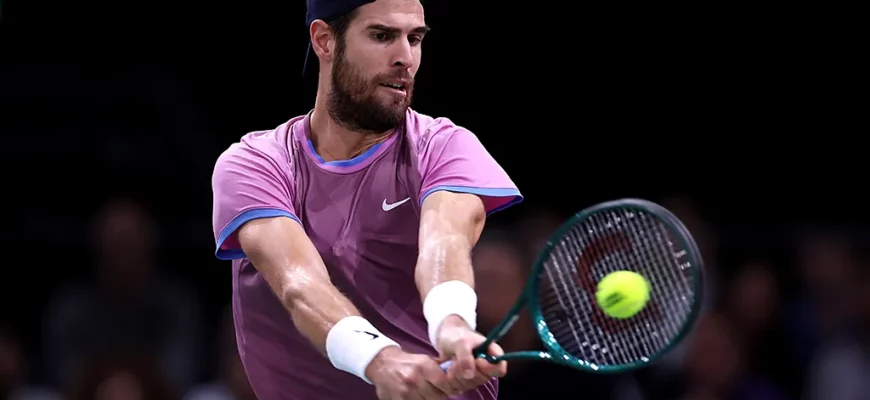Even for the world`s top-tier athletes, the journey to consistent success is rarely a smooth, linear progression. Professional tennis, in particular, often presents a relentless test of physical endurance, mental fortitude, and tactical acumen. Russian tennis star Karen Khachanov, currently ranked among the sport`s elite, recently offered a candid reflection on his own recent challenges, revealing a struggle that extends far beyond the numbers on a scoreboard.
The Unsettling Rhythm of Defeat
Khachanov, the world number 10, found himself in an unfamiliar and unwelcome pattern, facing his fourth consecutive ATP Tour defeat in Almaty against Germany`s Jan-Lennard Struff. This string of losses, including a tight 6/4, 6/7(5), 3/6 battle, prompted the powerful player to openly discuss the underlying issues affecting his game and his mindset.
“Last year, I mentioned that summer was more depressing for me than positive. And at one point, I started feeling like I was getting more and more bogged down by it, putting more pressure on myself.”
This admission sheds light on the often-hidden psychological toll of competitive sport. The relentless demand to perform, coupled with personal expectations, can quickly transform a minor dip in form into a self-feeding cycle of frustration and doubt. It`s a testament to the human element beneath the polished veneer of professional athleticism.
The “Strange Sport” and the Peril of Overthinking
Khachanov articulates a sentiment many tennis players would likely echo: “Tennis, and this is true, is a very strange sport.” He points to the dichotomy of analyzable aspects versus those that remain inexplicably elusive. The fine margins in tennis mean a single point can shift momentum, a slight error can cost a set, and even a well-executed game plan can unravel against an inspired opponent. The temptation to delve deep into psychological self-analysis is ever-present, but Khachanov has found this approach counterproductive for himself.
His philosophy is pragmatic: “If you`re going to get upset after every loss, you won`t be ready for the next tournament.” This speaks to the necessary detachment required to navigate the ATP circuit, where one tournament swiftly follows another. The true challenge lies not in avoiding disappointment entirely, but in processing it efficiently and refocusing on the task ahead. It`s a strategic mental pivot, essential for longevity in a high-pressure environment.
The Physical Undercut: US Open and Beyond
Beyond the mental landscape, Khachanov also pinpointed a more tangible disruption: physical health. He suggests the US Open “slightly knocked me off rhythm,” followed by a back injury that “a little bit threw me out of rhythm, out of schedule.”
It`s a subtle but significant detail. In professional sports, the body is a finely tuned instrument. Even a minor ailment can disrupt the delicate balance of an athlete`s technique, movement, and confidence. A back injury, in particular, can impact everything from serve power to groundstroke stability and lateral movement, cumulatively affecting performance in close matches. The cascading effect of a physical setback on a player`s overall game cannot be overstated.
Regaining the Edge: A Path Forward
Despite the recent setbacks, Khachanov maintains a clear perspective on his actual playing level. He emphasizes that his losses haven`t been one-sided blowouts (e.g., “2/6, 2/6”), but rather tight contests where he`s simply been unable to clinch the crucial points. This indicates that his baseline game remains solid, a testament to his inherent skill. “My level is still there – and it`s not minimal, but, let`s say, average. Accordingly, the game is there.” The pivotal question, he notes, is winning these razor-thin matches.
Drawing parallels to earlier in the year when he overcame similar challenges to find form, Khachanov`s resolve is evident. His current objective is to “collect these matches,” a phrase that encapsulates the meticulous process of rebuilding confidence and rhythm, point by point, game by game. It`s a reminder that even at the pinnacle of sport, success often boils down to grinding through the tough phases, trusting the process, and believing that the rhythm will eventually return. His journey to regain momentum will undoubtedly be closely watched as he aims to translate his candid self-assessment into renewed on-court success.








